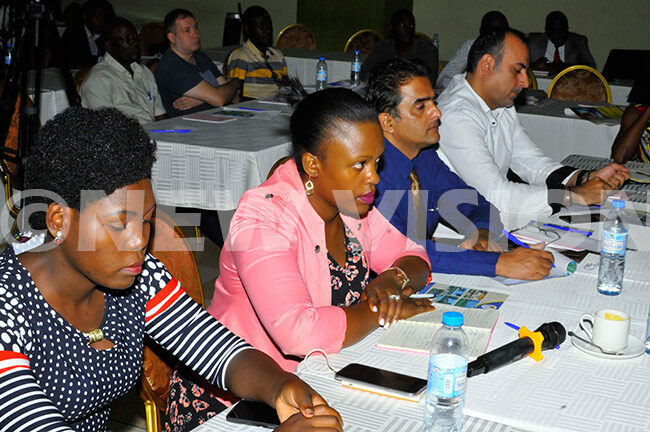Billions of ill-gotten money hid in real estate, says FIA
The FIA deputy executive director, Michael Olupot Tukei, said the money obtained through drug trafficking, corruption tendencies, murders and smuggling, among other illegalities is easily and quickly invested into real estate, frustrating efforts to track it.
GAMBLING|FRAUD
KAMPALA - The Financial Intelligence Authority (FIA) has found it difficult to track down the ill-gotten money invested in real estate development. It announced Thursday
The FIA deputy executive director, Michael Olupot Tukei, said the money obtained through drug trafficking, corruption tendencies, murders and smuggling, among other illegalities is easily and quickly invested into real estate, frustrating efforts to track it.
He attributed this to policy gaps and appealed for reforms to address them.
"When you look at the ease with which people trade in real estate in Uganda, there are no regulations followed and there is no regulator. It is even very easy for none Ugandans to buy and sell land in Uganda," Olupot noted.
Addressing over 100 directors and managers of Casinos and betting centres during their induction on the anti-money laundering legislation and intended policy reforms at Imperial Royale Hotel in Kampala yesterday, Olupot said: "Since our economy is cash intensive, we do not restrict how much amount of money one should spend.
Someone can pay hundreds of millions of money for a small piece of land, and with different types of land ownership complemented by lack of a regulator, it makes it easy for ill-gotten money to be introduced into the economy."
Documents, according to Olupot, are available in the office of the Inspector General of Government (IGG), Police and at the FIA indicating how most officials are not able to explain the sources of money they have heavily invested in buying land, construction of commercial buildings and hotels, among others.
In order to distance themselves from the illegal sources of their money, they invest the money into income generating activities.
He added that when income starts to follow in, it becomes hard to trace the source of the money.
"We are currently working with the Uganda Revenue Authority (URA), IGG, Police and Anti-Terrorism Units to share views on the information we have already obtained in our assessments," he said.
Recently the Ministry of Land, announced reforms in the land registration and titling, and this may partly address some of the gaps in the real estate management.
Land titles will be issued with National ID specifications, unique matrix bar code imprinted on the certificate of titles. In addition to registered postal address, Telephone mobile numbers and email addresses will be imprinted on the certificate of title.
 Participants attending the FIA meeting
Participants attending the FIA meeting
Penalty
FIA was set up in July 1, 2014 under Section 18 of the Anti-Money laundering Act 2013 as a central national agency responsible for the receipt and analysis of financial disclosures from accountable persons and dissemination of financial intelligence to competent authorities.
The penalty for money laundering if committed by a natural person or human being is 15 years or a fine not exceeding 100,000 currency points, which is an equivalent of sh2bn or both.
If committed by a company, then the penalty in Section 136 (1b) of the AMLA, is 200,000 currency points an equivalent of shs4bn.
Though Uganda doesn't have clear records on how much ill-gotten money is injected into the economy every year, according the Egmont Group, a global financial intelligence body, 5% of the money in the global economy is gotten through laundry.
He warned that casinos and other betting centers in the country was a target of not only local but also international rackets to clean their ill-gotten money.
Regulation of betting
Edgar Agaba, the executive director, National Gaming Board, disclosed that the sector was undertaking reforms to among others, safeguard it from money laundering crime.
Recently, the Minister of Finance, Planning and Economic Development, Matia Kasaija, announced that government will not renew operational licenses to lotteries, gaming, betting and casinos owned by foreigners.
Last financial year, over Sh35b were collected in taxes from the sector and this financial year's tax projection is approximately sh45b - sh50b.
Uganda approximately has more than 60 registered gambling companies of which more than 14 are casinos in both urban and rural areas, while others are betting houses, slot operators and a lottery operator.
It is estimated that Ugandans spend sh150bn annually on gambling. For example, it is estimated that out of more than 12 casinos in Uganda, each collects sh50m a day but less than sh10m of the amount is won back.